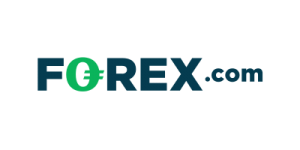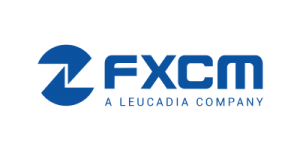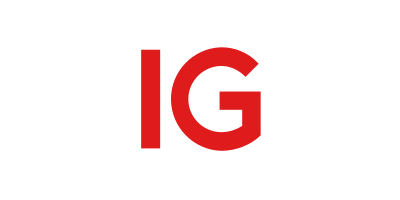Regulation in the Forex market is one of the main criteria to take into account before choosing a broker. It is very important for investment safety to know if the broker is regulated and if it is under a trustworthy body, this way you will be sure to trade with a company that meets certain standards. Logically, operating with a regulated broker will not give you a guarantee of total quality in the services provided by the broker, but in the event of a problem at least you will have someone to complain to.
What does the regulation consist of?
A regulated broker has a license to operate granted by financial regulatory bodies either in its country of origin or in the countries where it has offices. At the same time, you must comply with the standards set by these bodies.
Regulators are in charge of protecting investors and their money. They also ensure the maintenance of good commercial practices by the broker and mediate any conflict that may occur between the parties.
Many of these entities have strict requirements to accept any new financial intermediary or broker. In addition, they carry out frequent checks to ensure legality and make sure that brokers deal with their clients within the established.
Most common regulations
As we have seen, a regulated broker is obliged to comply with a series of rules. Among the most common internationally we have:
- Limit investors’ leverage to the maximum allowed.
- Warn their clients of the high level of risk involved in operating in the financial markets.
- Keep investors’ money in segregated accounts. In this way, investors’ funds are deposited in accounts separate from the company’s own funds.
- Send the financial reports requested by the competent authorities.
- Comply with the solvency and capital adequacy requirements established.
- Carry out regular audits.
Differences in regulations between countries
Keep in mind that regulations vary between different countries and that in some it is stricter than in others. The main reason for this lack of uniformity is the decentralization and globalization of the Forex market, where there is no single international entity that monitors its proper functioning. Each national entity regulates its own financial markets and its participants, although every day there is more homogeneity in regulations at the international level.
Regardless of the above, there are regional organizations such as the ESMA (European Securities and Markets Authority) which issues regulations that are strictly enforced for each of the countries of the European Union. Similarly, the MIFID (Markets in Financial Instruments Directive) is a harmonized European standard to regulate the different securities markets and instruments that are traded in the Eurozone.
In any case, regulatory bodies are present in almost every country in the world and the most demanding are in North America, Europe, Asia and Australia. On the other hand, many brokers have their offices in countries with low taxation, where the laws are more permissive with respect to companies that provide financial services and therefore do not provide too many guarantees. Of course, this does not mean that the broker is bad, but it is something to keep in mind when choosing one.
At the end of the article there is a list of some of the most reliable regulatory bodies.
Importance of regulation in the Forex market
In summary, regulatory bodies require each registered entity to comply with strict compliance rules that make them maintain ethical behavior in relation to their clients; those who can have a positive and fair experience. For this, the entities are constantly monitored by the regulators through the request for reports, investigations and audits.
The mere fact that a broker is regulated does not automatically make it a 100% trustworthy entity, but it is undoubtedly an extra guarantee for investors. However, despite choosing a regulated and reliable broker, there could be a risk that some unforeseen event appears that leads it to insolvency. Consequently, no matter how small the risk of something similar happening, it is always better to make sure that the broker is attached to some guarantee fund for investors.
These funds can vary from one country to another and specifically in the European Union there is a directive where the minimum limit is 20,000 euros. Regardless of this, some member countries offer more than this amount. Also in the United Kingdom there is the Financial Services Compensation Scheme (FSCS) and in the United States the Securities Investor Protection Corporation (SIPC).
List of regulatory bodies by country
Here is a list of some of the most reputable organizations in charge of regulating the Forex market.
Europe
- Financial Conduct Authority (FCA) – United Kingdom
- Cyprus Securities and Exchange Commission (CySEC) – Cyprus
- Comisión Nacional del Mercado de Valores (CNMV) – Spain
- Eidgenössische Finanzmarktaufsicht (FINMA) – Switzerland
- Association Romande des Intermédiaires Financiers (ARIF) – Switzerland
- Bundesanstalt für Finanzdienstleistungsaufsicht (BaFin) – Germany
America
- National Futures Association (NFA) – USA
- Commodity Futures Trading Commission (CFTC) – USA
- Financial Industry Regulatory Authority (FINRA) – USA
- Investment Industry Regulatory Organization of Canada (IIROC) – Canada
Asia
- Securities and Futures Commission (SFC) – Hong Kong
- Singapore Exchange (SGX) – Singapore
- Financial Services Agency (FSA) – Japan
Oceania
- Australian Securities and Investments Commission (ASIC) – Australia
- Financial Markets Authority (FMA) – New Zealand
- What is FOREX?Do you want to know what Forex is? An approach to the subject with detailed and useful information on its operation and main characteristics.
- Types of brokersThere are several types of Forex brokers and learning about them can have a huge impact on your Forex trading experience.
- 10 Basic Forex Terms We Should Know.There are certain basic Forex terms that we must know before operating in the markets and thus have a greater chance of success.
- How to choose a Forex broker?In this article we will show you how to choose a Forex broker, but not just any one, but one that suits your needs.
- Regulation in the Forex marketRegulation in the Forex market is one of the main criteria that must be analyzed before choosing a broker.




